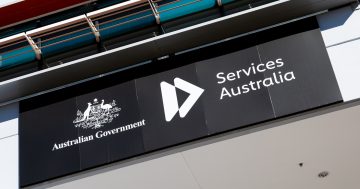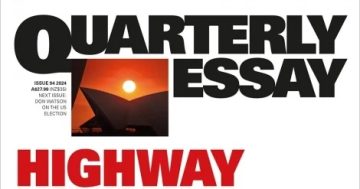
The ANAO probe into the Department of Climate Change, Energy, the Environment and Water found that it was only partially effective across many of its governance and communications responsibilities. Photo: Ian Cargill.
An Australian National Audit Office (ANAO) report says the government department tasked with delivering on Australia’s climate change commitments has only been partly effective in doing so.
The ANAO report entitled Governance of Climate Change Commitments was commissioned last year to assure Parliament on the effectiveness of the Department of Climate Change, Energy, the Environment and Water (DCCEEW).
In particular, it looked at the department’s governance arrangements supporting the implementation of Australia’s climate change commitments, including its measures to assess and quantify implementation, coordination, risk management and performance.
The report was handed down on 15 January.
The DCCEEW was formed in July 2022, shortly after the Labor Government came to power, and it was considered the government’s lead agency to deliver its agenda across climate change, energy, the environment, heritage and water.
In September 2022, the Parliament passed legislation to formalise Australia’s commitments to reduce emissions under the Paris Agreement of the United Nations Framework Convention on Climate Change (UNFCCC), including achieving net-zero emissions by 2050, and reducing greenhouse gas emissions by 43 per cent below 2005 levels by 2030.
The audit report says the DCCEEW’s purpose is to drive climate action and transform Australia’s energy system to support net-zero emissions while maintaining its affordability, security and reliability through the Powering Australia program. It says DCCEEW is responsible for matters relating to the development and coordination of domestic and international climate action, policy, strategy and reporting.
The audit studied the effectiveness of the DCCEEW’s governance arrangements supporting these climate change commitments. To this end, the audit asked whether appropriate risk-based oversight arrangements and management strategies were in place, and had effective coordination measures been established.
The audit found that the DCCEEW’s governance arrangements are only partly effective, with some components including national plans, strategies and frameworks yet to be delivered. It further found that the department is unable to demonstrate the extent to which specific policies and programs have contributed or are expected to contribute towards emissions reduction.
It said the DCCEEW’s oversight arrangements and risk management strategies are only partly appropriate, and that it has not yet delivered planned climate risk strategies and frameworks for use by government entities, including by the department itself.
It added that, while the department had established partly effective coordination and reporting arrangements, it cannot demonstrate that these arrangements are fulfilling their intended role. It said there is no consolidated policy- and program-level reporting on progress, evaluation and decision-making across the Powering Australia program of work.
The ANAO’s report recommended that:
- The DCCEEW develop a strategic framework for the delivery of the Powering Australia program of work.
- It develop and implement an information assets management policy consistent with the Archives Act 1983 and supporting policies.
- The department manage and coordinate risk assessment and treatment across the Powering Australia program of work to ensure risk is understood and addressed.
- It finalise the Powering Australia communication and stakeholder engagement plan and clarify roles, responsibilities, and outcomes.
- The DCCEEW use its reporting to demonstrate that its management of climate and energy work clearly contributes to achieving Australia’s climate change commitments.
The department agreed with all five of the ANAO’s recommendations and said their implementation had begun.
It says the work will form part of its efforts to improve and mature the governance arrangements established in relation to risk, information management, reporting and the coordination of stakeholder engagement and communication, and the implementation will be overseen by the department’s Audit Committee.
Original Article published by Andrew McLaughlin on Riotact.











